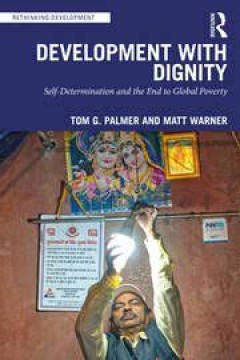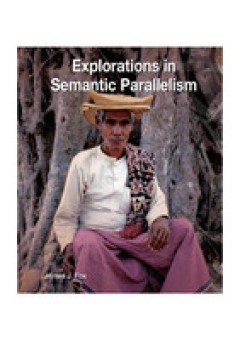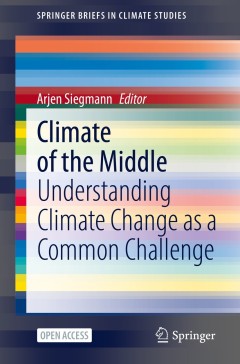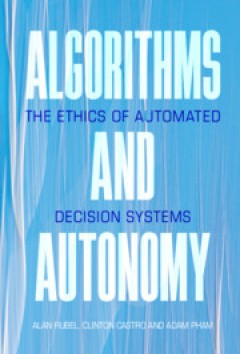Filter by

Development With Dignity : Self-determination, Localization, and the End to P…
At a time when the global development industry is under more pressure than ever before, this book argues that an end to poverty can only be achieved by prioritizing human dignity. Unable to adequately account for the roles of culture, context, and local institutions, today’s outsider-led development interventions continue to leave a trail of unintended consequences, ranging from wasteful to e…
- Edition
- -
- ISBN/ISSN
- 9781003229872
- Collation
- xvii, 203p ; ill.
- Series Title
- Rethinking Development
- Call Number
- 338.90091724 PAL d

Animal (de)liberation : should the consumption of animal products be banned?
In this book, Jan Deckers addresses the most crucial question that people must deliberate in relation to how we should treat other animals: whether we should eat animal products. Many people object to the consumption of animal products from the conviction that it inflicts pain, suffering, and death upon animals. This book argues that a convincing ethical theory cannot be based on these importan…
- Edition
- -
- ISBN/ISSN
- 9781909188853
- Collation
- viii ; 234p. : ill.
- Series Title
- -
- Call Number
- 179.3 JAN a

Ethical issues in covert, security and surveillance research
The EU-funded PRO-RES Project aimed to produce a guidance framework that helps to deliver Responsible Research and Innovation (RRI). PRO-RES is a Horizon 2020 project coordinated by the European Science Foundation (ESF), involving 14 different partners across Europe. As one of a series of open access products of the Project, Ethical Issues in Covert, Security and Surveillance Research will be p…
- Edition
- -
- ISBN/ISSN
- 9781802624113
- Collation
- xxi, 218p : ill.
- Series Title
- -
- Call Number
- 363.232 ETH e

Explorations in Semantic Parallelism
Since 1965, when I frst began to record and attempt to understand the ritual poetry of the Rotenese, the study of semantic parallelism has been a major focus of my research. My chief concern has been with the semantics of canonical parallelism. In my view, the study of parallelism and particularly the study of canonical parallelism is no minor subject but is, in fact, a matter of central theore…
- Edition
- -
- ISBN/ISSN
- 9781925021066
- Collation
- xi, 433p. : ill
- Series Title
- -
- Call Number
- 401.43 JAM e

Climate of the middle
his Open Access book presents a multidisciplinary perspective to increase our understanding of climate policies that are rooted in the natural moral inclinations of people, families and firms. Which policies prevent a widening gap between higher and lower educated people? Which policy instruments are there, and how could they be used? What is the role of free entrepreneurship?
- Edition
- 1
- ISBN/ISSN
- 9783030853228
- Collation
- ix; 71 PG; ill.
- Series Title
- SpringerBriefs in Climate Studies
- Call Number
- 363.73874 CLI c

Media Infrastructures And The Politics of Digital Time; Essays on Hardwired T…
Digital media everyday inscribe new patterns of time, promising instant communication, synchronous collaboration, intricate time management, and profound new advantages in speed. The essays in this volume reconsider these outward interfaces of convenience by calling attention to their supporting infrastructures, the networks of digital time that exert pressures of conformity and standardization…
- Edition
- -
- ISBN/ISSN
- 9789048550753
- Collation
- -
- Series Title
- -
- Call Number
- -

Electric-shock weapons, tasers and policing : myths and realities
Building on five years of research, and drawing on criminology, science and technology studies (STS), socio-legal studies and social psychology, this book is the first non-medical book written on electric-shock weapons, of which the best well known is the TASER brand. The police’s ability to use force is one of their most crucial powers, yet one that has been relatively neglected by crimin…
- Edition
- 6
- ISBN/ISSN
- 9781003002864
- Collation
- 202p
- Series Title
- -
- Call Number
- 363.230284 ELE A

Creating future people : the ethics of genetic enhancement
Creating Future People offers readers a fast-paced primer on how new genetic technologies will enable parents to influence the traits of their children, including their intelligence, moral capacities, physical appearance, and immune system. It deftly explains the science of gene editing and embryo selection, and raises the central moral questions with colorful language and a brisk style. Jonath…
- Edition
- -
- ISBN/ISSN
- 9780367203108
- Collation
- xiv, 127p.
- Series Title
- -
- Call Number
- 576.5 CRE a

Polio Across the Iron Curtain : Hungary's Cold War with an Epidemic
By the end of the 1950s, Hungary became an unlikely leader in what we now call global health. Only three years after Soviet tanks crushed the revolution of 1956, Hungary became one of the first countries to introduce the Sabin vaccine into its national vaccination programme. This immunization campaign was built on years of scientific collaboration between East and West, in which scientists, spe…
- Edition
- -
- ISBN/ISSN
- 9781108355421
- Collation
- ix, 268 p ; ill
- Series Title
- -
- Call Number
- 616.835009439 POL D

Algorithms and Autonomy : The Ethics of Automated Decision Systems
Algorithms influence every facet of modern life: criminal justice, education, housing, entertainment, elections, social media, news feeds, work… the list goes on. Delegating important decisions to machines, however, gives rise to deep moral concerns about responsibility, transparency, freedom, fairness, and democracy. Algorithms and Autonomy connects these concerns to the core human value of …
- Edition
- -
- ISBN/ISSN
- 9781108895057
- Collation
- viii, 218 p ; ill
- Series Title
- -
- Call Number
- 174.90063 ALG A
 Computer Science, Information & General Works
Computer Science, Information & General Works  Philosophy & Psychology
Philosophy & Psychology  Religion
Religion  Social Sciences
Social Sciences  Language
Language  Pure Science
Pure Science  Applied Sciences
Applied Sciences  Art & Recreation
Art & Recreation  Literature
Literature  History & Geography
History & Geography